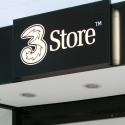Also in today's EMEA regional roundup: Orange collaborates with Telxius on Google's subsea project; Ericsson and Audi test URLLC; BT gets flexible on TV.

Also in today's EMEA regional roundup: Orange collaborates with Telxius on Google's subsea project; Ericsson and Audi test URLLC; BT gets flexible on TV.
UK mobile operator Three has chosen altnet CityFibre as its "preferred provider" for backhaul outside London as it gears up for 5G rollout. The first phase of the agreement will see CityFibre provide backhaul connectivity to Three's cell sites across several existing CityFibre "Gigabit City" projects. The first connections will go live this summer, in line with Three's 2020 5G program. Greg Mesch, CityFibre's CEO, described the deal as a "huge vote of confidence" in his company. (See CityFibre to Raise £200M, Ramp Up FTTH Challenge to BT.)
Orange is to collaborate with Telxius, the infrastructure arm of Telefónica, on backhaul extensions for the Google-backed Dunant subsea cable, which is intended to address the exponential growth in data traffic needs between Europe and the US. Under the terms of this agreement, Orange and Telxius will offer colocation services at their respective cable landing stations in Saint-Hilaire-de-Riez (France) and Virginia Beach (US) and operate them.
Also collaborating are Ericsson and carmaker Audi, who are testing ultra-reliable low-latency communication (URLLC) capabilities for factory automation at Audi's P-Labs research facility in Germany. According to Ericsson, replacing wires in automated factories with 5G URLLC technology increases flexibility in the production process while reducing the risk of harm to employees.
Seemingly taking its cue from Sky TV's Now TV product, BT is tweaking its TV offer to make it more flexible, allowing customers to dip in and out as the mood takes them. The new, non-contract packages start at £10 (US$13) a month, for a tier offering access to content from a range of channels including Sky Atlantic and Sky One, right up to a £60 ($78) a month smorgasbord that brings sports content from BT and Sky as well as a ton of non-sporty fare. Commenting on the move, independent analyst Paolo Pescatore said: "This well long overdue move feels like a last ditch effort to be successful in TV. It will strongly resonate with users. However, it is unlikely to pose a considerable threat to Sky, which in turn will be able to bundle BT Sport into its own packages."
South Africa's MTN has gone with US-based analytics company Teoco to help standardize its its radio and microwave network planning tools. MTN will deploy Teoco's Asset Radio and Asset Backhaul offerings across subsidiary networks that span 18 different countries.
ADVA has taken the wraps off what it claims is "the industry’s most compact 100G edge demarcation solution," in the form of its FSP 150-XG400 Series. According to the Munich-based vendor, the offering brings MEF 3.0-certified 100Gbit/s services to the network edge, enabling businesses and mobile operators to more easily scale up their metro networks and address booming bandwidth demand.
Thierry Breton is the latest European Commission bigwig to attempt to put the US tech giants in their place. Reuters reports that, after a short meeting with Facebook's Mark Zuckerberg, an unimpressed Breton told reporters: "It's not for us to adapt to this company, it's for this company to adapt to us." Interestingly, Breton, now an EU industry commissioner, used to work for Orange. Tomorrow (Wednesday), Breton will lead the European Parliament in a debate debate of Europe's long-term digital strategy, including the presentation of a white paper on artificial intelligence that will aim to support the technology's adoption within the EU.
— Paul Rainford, Assistant Editor, Europe, Light Reading
Read more about:
EuropeAbout the Author(s)
You May Also Like











